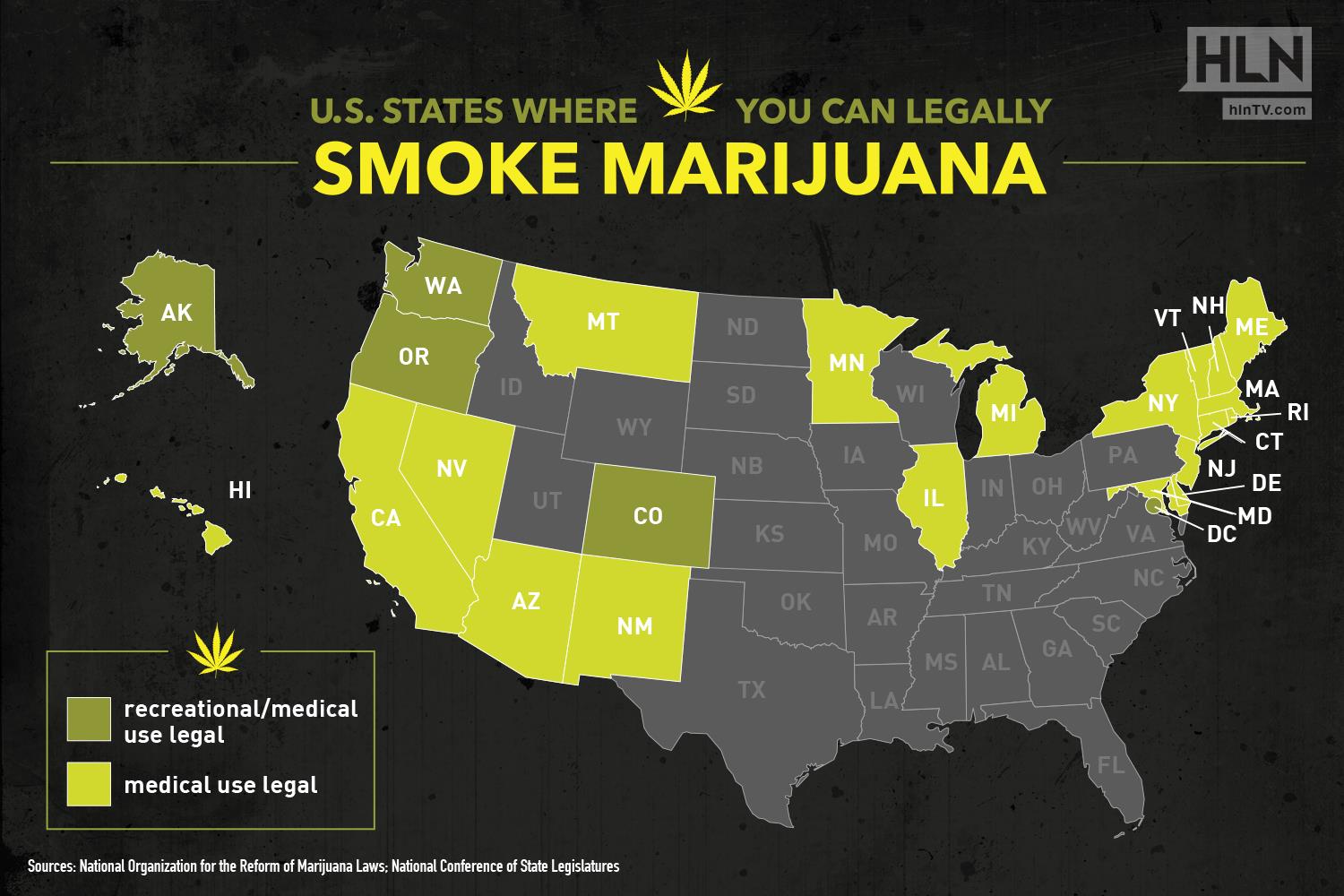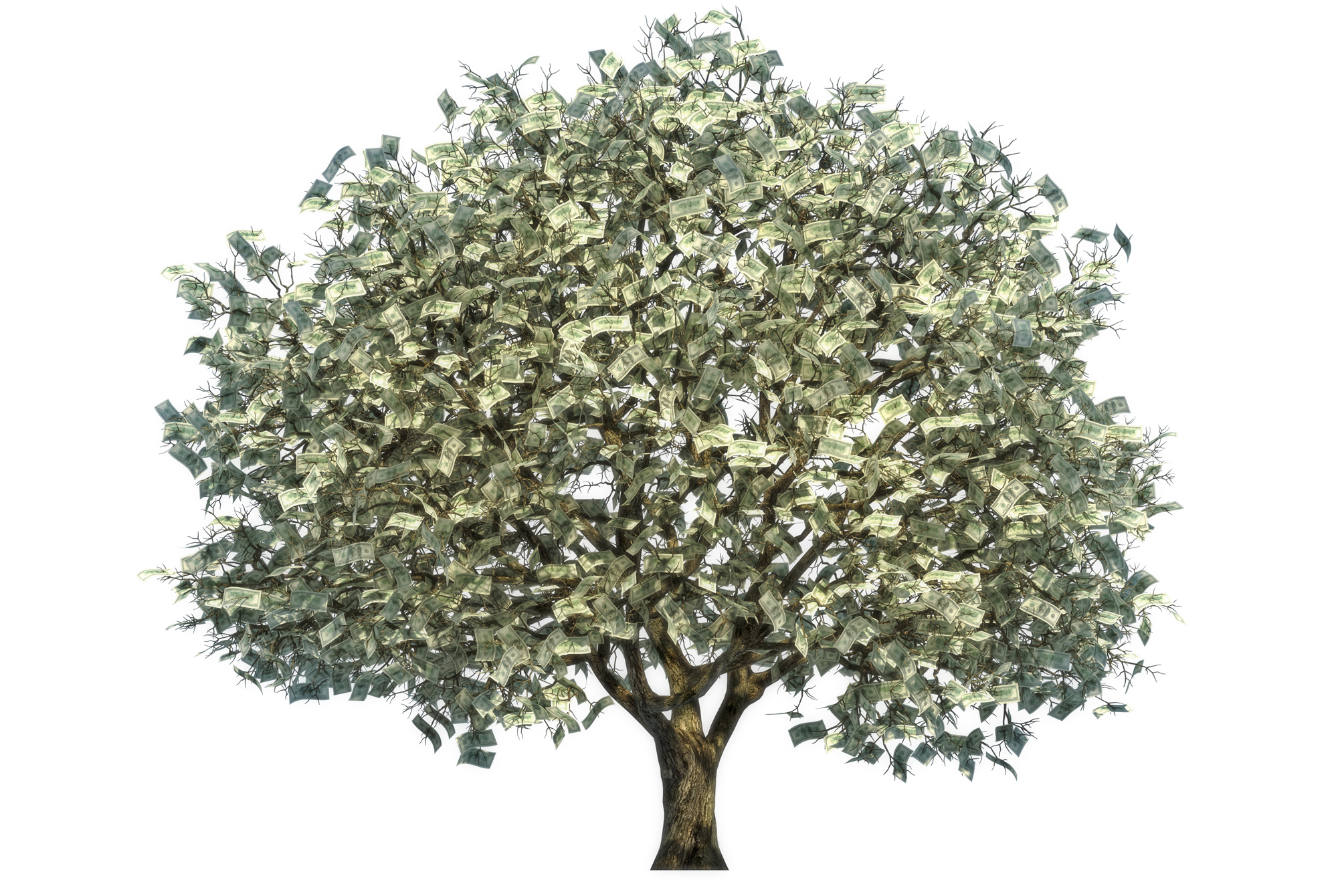CNN reporter Randi Kaye does the best job showing America what retail weed stores will look like that we’ve seen on Higher Ground. She also gets a hilarious contact high from being “hotboxed”in a Cannabis Tourbus.
You Might also like
-
Higher Ground: Christian Chronic, Killer Pot, and Some Suing Sheriffs
Passing the dutchie to the right this time.
The idea of Higher Ground is to “elevate the dialogue,” and thus it’s important to remain open-minded to individuals and organizations on all sides of the marijuana-legalization conversation. With that in mind, let’s light the peace pipe and reach the roach across the aisle.WHAT WOULD JESUS DOO-BIE? Strongly opposing marijuana legislation are activists Alan Gordon and Anne Armstrong, who made headlines by bum-rushing a press conference supporting a new state legalization bill in Rhode Island. The duo aren’t against the notion of legal weed, but instead believe that taxing the plant is against the teachings of the Bible, and Satanic for putting money over patients’ rights. They take issue with the language of the law, claiming medical use of cannabis (which they believe is the Biblical plant called “kaneh-bos”) outweighs any laws, restrictions, or taxes.
“ ‘Marihuana’ is a slang term popularized by William Randolph Hearst in his ‘yellow journalism’ Reefer Madness-type propaganda,” Armstrong told Marijuana.com. “To pass laws about ‘cannabis,’ the plant specified in the Bible as essential to the Holy Anointing Oil, as ‘marijuana’ is as offensive to me as would be a law referring to ‘Equal Pay for Bimbos.’ ”
Gordon and Armstrong will be planting fields of the sacred herb in National Parks this summer, and dedicating them to religious freedom.
Praise Sativas!
CHRONIC KILLS New York Police Commissioner Bill Bratton is claiming that ganja is responsible for the murders, mayhem, and overall rise in crime in the Big Apple for the first three months of this year.
“In this city, people are killing each other over marijuana more so than anything we had to deal with in the ’80s and ’90s with heroin and cocaine,” Bratton stated. While murders in NYC have increased 17 percent from last year, whether pot is to blame is somewhat questionable. The overall crime rate in New York City is actually down: felony assaults have decreased 18 percent, robberies 22 percent, and crime on subways more than 25 percent.
Compare that to the largest cities that have legalized weed: In Denver, homicides are down 24 percent, but in Seattle they’ve soared—from 23 to 26. And the biggest fact-check of all: In 1990 there were 2,245 murders in New York. Last year? 383. While I’m attempting to be objective, it seems as though the marijuana plant’s not killing anyone.
SHERIFFS SUE While the Evergreen State skates, for some reason Colorado’s getting picked on, and has already been sued by neighboring states Nebraska and Oklahoma for its dope-smokin’ ways. Now a group of sheriffs from Kansas and Nebraska, and even inside Colorado, are piling on, and also filing suit.
“When these Colorado Sheriffs encounter marijuana while performing their duties,” the new lawsuit states, “each is placed in the position of having to choose between violating his oath to uphold the U.S. Constitution and violating his oath to uphold the Colorado Constitution.”
The reason sheriffs from Kansas and Nebraska submitted the initial lawsuit had to do with the porous borders their states share with Colorado. Apparently, it’s too damn easy for Okies to mosey over to Colorado, pick up that-there marihuana, and cruise back home with the wacky weed to share with friends and family at the annual Toothless BBQ. (Sorry, I’m really trying here, I swear.) In addition to violating federal law, officers state, legalization in Colorado jeopardizes the U.S.’s compliance with international anti-drug treaties.
As the sheriffs put it, departments are “suffering a direct and significant detrimental impact, namely the diversion of limited manpower and resources to arrest and process suspected and convicted felons involved in the increased illegal marijuana trafficking or transportation in their jurisdictions.” Maybe they should consider legalizing it.
Funded by the Florida-based Drug Free America Foundation, the suit goes on to play the Kid Card! “As a result of Amendment 64-related interdiction efforts,” it mopes, “departments have been forced to scale back on drug education and awareness programs in schools.” That hurts. (A related aside: Marijuana sales in Colorado since Jan. 1, 2014 have brought in $15.6 million in excise taxes specifically earmarked and voter-approved solely for public schools, according to the director of the office of capital construction for the state’s Education Department . . . just sayin’.)
LEGALIZE LETTUCE Finally, a pro-life, pro-gun, Tea-Partying Texas Republican has a unique and simple take on the legalization matter: Take every law that prohibits weed off the books. Representative David Simpson of Longview said his bill would increase individual liberties and decrease government control, bedrock values of the conservative movement’s libertarian wing.
“I think we’re at a tipping point,” Simpson said. “I think it’s clear the war on drugs has failed, that the war mentality has eroded individual rights, the sanctity of one’s home, the ability to travel freely with dignity. And at the root of all this is prohibition.”
The bill is as no-nonsense as the man behind it. Rather than add flowery language about taxation and registration, House Bill 2165 simply regulates marijuana . . . as a plant.
“I’m hopeful that if this bill were to pass, we could see hemp cultivated and used as ropes,” noted Simpson. “We can see the marijuana with differing levels of THC used medicinally. I think it’s the right thing to do. It’s the conservative thing to do.”
The bill allows folks to farm it and use it, like tomatoes, coffee, and corn. Untaxed. Deregulated. Done and get ’er done.
This article first appeared in the Seattle Weekly -
The Tax Revenue From Legalize Weed Is Pouring Into Colorado
(Denver Post) Colorado recorded its biggest recreational marijuana tax haul yet in April, topping more than $3.5 million in sales and excise taxes, according to numbers released Monday.
In all, the state’s recreational marijuana stores sold more than $22 million worth of product in April, likely boosted by the 4/20 marijuana holiday that brought hundreds of cannabis tourists to town. Overall, though, medical marijuana sales continued to outpace recreational sales, with lower-taxed medical-marijuana stores doing more than $31 million in sales during the month.
So far this year, Colorado has brought in nearly $11 million in sales and excise taxes on recreational marijuana. The total take of recreation and medical marijuana taxes and fees is nearly $18 million.
The new numbers were released on the same day that marijuana activists announced plans to sue the state over recreational pot taxes. According to a copy of the lawsuit sent to the media, the activists argue that the taxes are unconstitutionally high.
Shoppers at recreational marijuana stores pay 12.9 percent in general and special state sales taxes, as well as a 15 percent excise tax that is applied at the wholesale level.
The lawsuit argues those rates violate the constitutional provision voters approved in 2012, which specified that recreational marijuana should be taxed “in a manner similar to alcohol.” The activists say alcohol taxes are much lower.
Attorney Rob Corry, who is representing the activists, said he filed the lawsuit Monday.
More marijuana dispensaries continue to open. As of June 3, more than 200 marijuana dispensaries were licensed, according to the state Department of Revenue. That’s about half of the more than 500 total shops statewide that are eligible to obtain a retail marijuana sales license.





